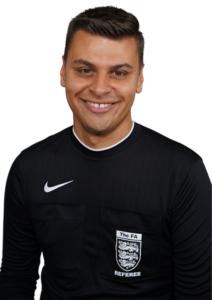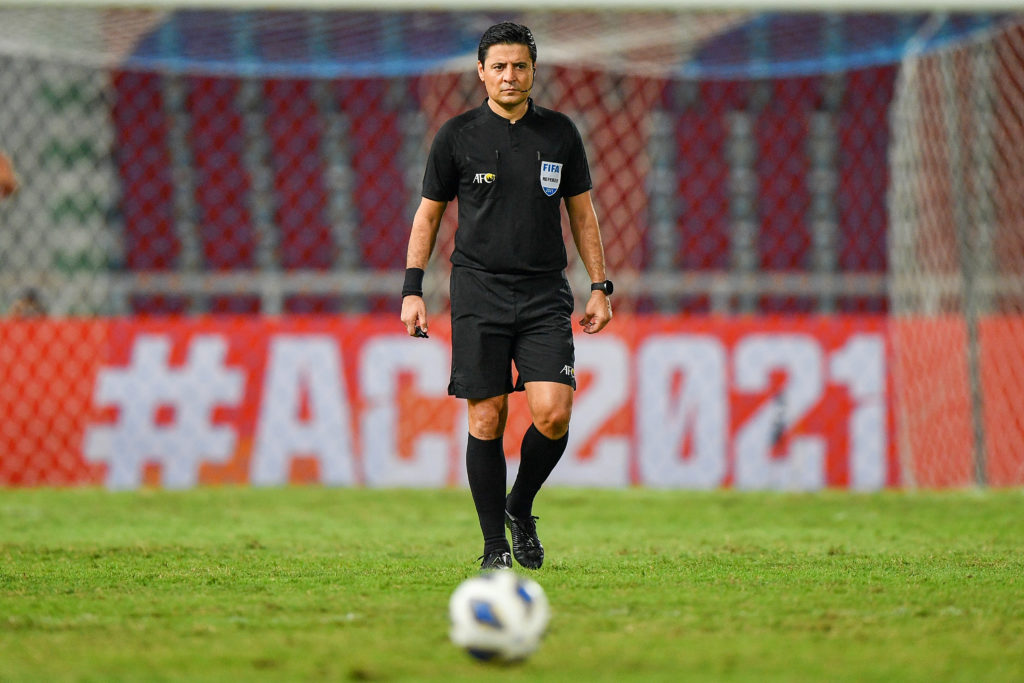Concentration is at the very foundation of Mental Toughness. When you focus on the wrong things you’ll get nervous, lose your confidence and fall apart performance-wise out on the field of play. However, when you focus on the right things, you’ll stay calm, confident, and perform to your refereeing potential! Learn the nuts and bolts of high performance concentration.
Your ability to focus on what’s important and let go of everything else is absolutely essential to reaching your potential as an officials. If you concentrate on the wrong things at the wrong time, you’ll never perform to your true refereeing potential!
Concentration is one of the key mental skills responsible for high performance officiating. A mentally tough referee knows how to concentrate and can do it under pressure. More “mentally sensitive” officials are those who can’t control their focus of concentration when it counts and get distracted by the “sound” of the lights shining.
As a Resilience Trainer & Referee Educator, I help referees, their coaches, and family members manage this incredible stress and help them stay calm, motivated, and mentally tough!
Here are three exercises you can employ to develop high performance concentration. For each exercise, begin by sitting comfortably in a place that’s free from distractions. After gaining confidence in your ability to concentrate, you can progressively add distractions. Allow 5 minutes for each exercise unless otherwise stated.
Exercise 1: Object Stare
Place a whistle, coin, watch or any other refereeing object directly in front of you, pick a specific spot on the object and then in a relaxed manner, focus your attention on that spot. Study it carefully. As you keep your eyes on that spot, slowly repeat to yourself a word or phrase. That word or phrase will be your “concentration cue,” or reminder. For example, you can use the words “gold,” “now,” or “smooth.” Quickly bring your focus back to your spot each and every time that you find yourself drifting. Next, close your eyes and try to get a visual image of the object and your spot. Continue to repeat your concentration cue to yourself as you do this. Finally, pick the watch or object up and study it with your hands. Feel the texture of the surfaces, the corners and points, the temperature of it, the feel of raised writing if any, etc., and as you do this continue to repeat that cue to yourself. Repeat this sequence (looking, imaging and feeling) for 5 minutes.
Exercise 2: Blocking Distraction
Sit up close to your TV screen with the screen on (a football match if possible) and no volume. Hold your thumb out against the screen and focus only on the centre of your thumbnail for about 10 seconds. When you can do this without being distracted by the pictures, increase your time up to 20 seconds. When you can go a whole minute, turn the volume up and try to focus only on your thumb for 10 seconds without being distracted by the sound or pictures. Continue to increase your time until you can go 1-2 minutes without losing your focus.
Exercise 3: Bring Yourself Back
This is the heart of concentration! Focus your attention on your breathing as you inhale. With each exhalation switch your focus to the number “1” (you can repeat the sound to yourself or “see” a number 1 in your mind’s eye.) Inhale, focus on your breathing; exhale, focus on number 1. When you first find your mind distracted or wandering, gently return to your focus in the following way: Concentrate on the feeling of the inhale. As you exhale focus now on the number “2”. With each distraction, recognise that you are drifting, bring yourself back and increase the number you focus on by one.
If you treat your concentration like a muscle and work to develop it, you will discover great results. Remember to always focus on yourself. To perform your best when it counts, you must stay focused on your fixture!
At The Third Team I work individually and in collaboration with different professionals where I have developed workshops and 1-2-1 sessions associated with Resilience and Mental Toughness Development to help referees. The workshops and 1-2-1 sessions are interactive, where referees are encouraged to open up and share their experiences to help themselves and each other.
Feel free to contact me if you’d like to know more about my workshops or 1-2-1 sessions and how I could help you or your officials.
Best Wishes,

Nathan Sherratt
Referee Educator & Managing Director of The Third Team

Nathan Sherratt
Nathan Sherratt, Referee Educator, Resilience Trainer and Managing Director of The Third Team. A Mental Toughness Practitioner based in County Durham, North East England.

